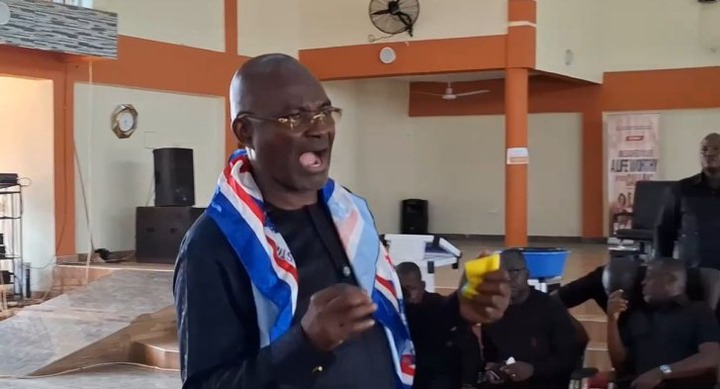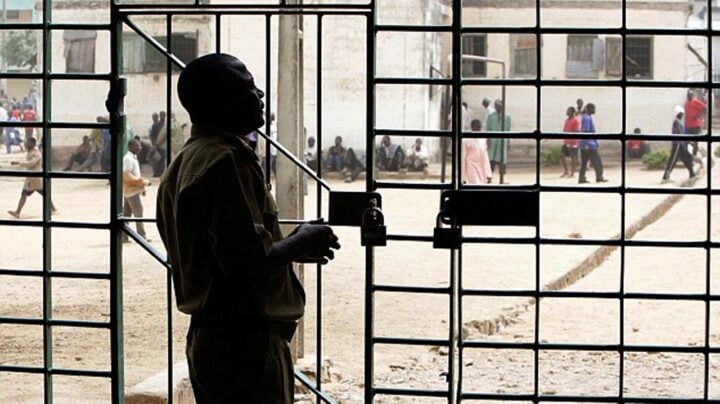Death of Zambia's Ex-President Edgar Lungu Causes Political Stir and Calls for Reflection

The recent passing of Zambia's Sixth Republican President, Dr. Edgar Chagwa Lungu, in June 2025, has enveloped the nation in mourning while simultaneously igniting a firestorm of political debate and calls for profound national reflection. While the Zambian government has declared a seven-day period of national mourning (June 8-14) and initiated plans for a state funeral with full honors, this gesture has been met with skepticism and anger by his supporters and family, who allege that his treatment in life by the current administration starkly contrasts with the respect being shown in death.
Dr. Lungu's life was marked by a significant legal and political career, and personal relationships that highlighted a complex individual. His long-time friend and professional colleague, Sakwiba Sikota, recalled first meeting Lungu in 1982. Lungu was described as jovial, easy-going, with a sharp mind and a 'good soul,' who did not let the presidency change his fundamental nature. His early career saw him as a learner Legal Practitioner, in the legal department of ZCCM, and later in private practice. A pivotal moment was a seven-week legal aid program in the USA in 1995, which cemented his bond with Sikota. Lungu's first foray into politics was in 1996, standing as an independent candidate in Chawama Constituency, an experience Sikota supported. He later became involved with the United Party for National Development (UPND) in its early days. Their professional collaborations included complex cases like the Gabon football disaster representation and a joint business venture in property. Sikota also served in Lungu's legal team during the 2016 Presidential Petition and the Dan Pule eligibility case, noting Lungu's respect for legal counsel despite his own legal acumen. Lungu was also instrumental in the formation of the United Kwacha Alliance (UKA), an initiative to unify opposition parties.
The circumstances leading to Dr. Lungu's death are at the heart of the current controversy. He suffered from achalasia, a condition affecting the esophagus, requiring ongoing medical attention. After leaving office in 2021 and re-entering politics, his presidential benefits were suspended, an action legally permissible under the Benefits of Former Presidents Act but perceived by many as politically motivated retaliation. More critically, his attempts to seek specialized medical treatment abroad were reportedly repeatedly obstructed by state authorities. Patriotic Front (PF) Secretary General Rafael Nakacinda alleged that Lungu made several unsuccessful attempts to travel for medical reviews from 2022, being blocked or delayed even when offering to fund the trips privately. In one instance, he was allegedly removed from a plane. It was only in late 2024, reportedly under the observation of a visiting UN human rights rapporteur, that Lungu was able to discreetly travel to South Africa for treatment. Sikota recounted Lungu's premonition that the state would try to prevent this final trip. Upon arrival in Pretoria, doctors informed him that his condition had significantly worsened due to the delays in receiving care, and he ultimately succumbed to his illness.
The PF has vehemently accused the current government, led by the United Party for National Development (UPND), of subjecting Lungu to humiliation and obstruction that may have hastened his death. Nakacinda, speaking from South Africa where he was with the family, contended that Lungu’s death could have been avoided had he not been denied medical freedom. The family, deeply aggrieved, initially planned to handle the repatriation and funeral arrangements independently, financed by well-wishers, but were reportedly taken aback when government ministers, including Foreign Affairs Minister Mulambo Haimbe, intervened to take charge of the process. This has led to a standoff, with Lungu's remains still in South Africa as the family seeks clarity and conducts additional procedures, including a requested postmortem, amidst speculative reports of medical neglect or even poisoning – claims Nakacinda stated merit thorough examination.
The government's decision to accord Lungu a state funeral has been described by his allies as disingenuous and politically opportunistic, an attempt to 'cleanse their record.' This sentiment has fueled tensions, overshadowing the national mourning. Figures like former Vice President Enoch Kavindele have urged Zambians to mourn in a dignified manner, emphasizing that Lungu served the entire nation and peacefully handed over power. He condemned the politicization of the funeral, a sentiment echoed by political analyst Prince Bill M Kaping’a, who criticized those attempting to score political mileage and likened the finger-pointing to backward thinking. Kaping'a also questioned the practicality of the PF or family managing the logistics of a state funeral for a former head of state, which would involve high-profile international dignitaries.
Beyond the immediate grief and political recriminations, Lungu's passing has brought to the fore a critical need for legal and constitutional reflection. Commentator Mathew Mukuluta highlighted that while the suspension of Lungu's benefits was lawful, the denial of travel for medical care had no constitutional grounding and constituted a human rights violation. This episode, he argued, demands a sincere public apology from the government and, more importantly, should spur legal reform. Zambia, it is argued, must craft clearer, more humane laws governing the treatment of former presidents who return to politics, ensuring that fundamental rights, especially to healthcare, are not compromised by political vendettas. The 'all-or-nothing' policies currently in place are deemed too blunt and dangerous. The death of Edgar Chagwa Lungu is thus presented not just as a moment of national sorrow, but as a crucial juncture for Zambia to learn, reform, and ensure that dignity and justice prevail over political rivalry.








